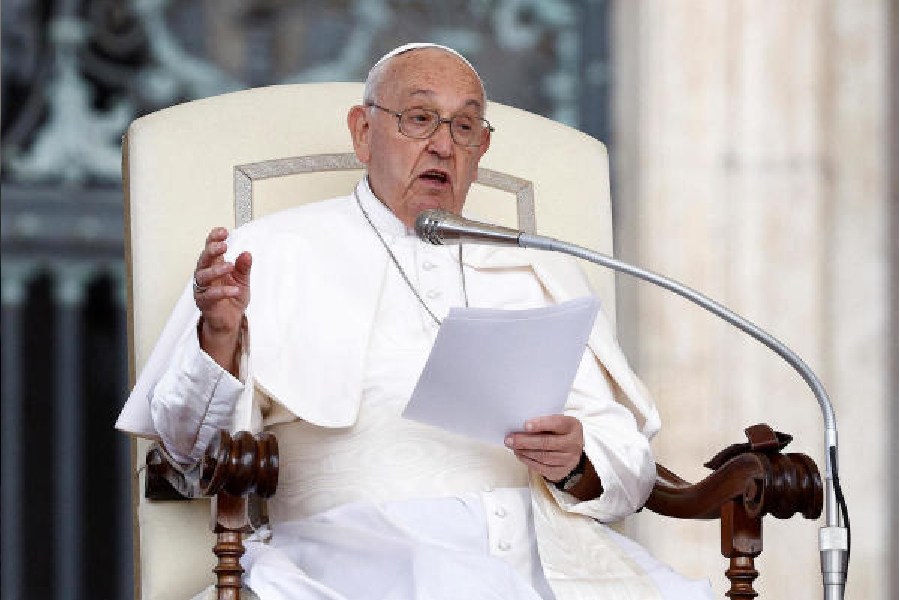Pope Francis’s yearslong process to reform the Catholic Church closed on Saturday with recommendations that fell short of giving women more equity as hoped, but reflected the pope’s aims for a church that at least listens more to its followers.
In a significant move, the pope said he would not issue a teaching document from the recommendations, which called for women to be allowed all opportunities that Church law already provides while leaving open the contentious question of permitting women to be ordained as deacons.
As a result, it remains unclear what if any authority or impact the synod’s final recommendations will have, given the purpose of the exercise was to provide the pope with specific proposals on reform.
“In this time of war, we must be witnesses to peace” and give an example of living with differences, the pope said in explaining his decision.
Francis said he would continue to listen to the bishops’ counsel, adding “this is not a classic way of endlessly delaying decisions”.
Deacons perform many of the same functions as priests, such as presiding over baptisms, weddings and funerals, but they cannot celebrate Mass. Advocates say allowing women to be deacons would help offset the shortage of priests. Opponents say it would signal the start of a slippery slope toward ordaining women to the all-male priesthood that Francis has repeatedly reaffirmed.
Earlier this week, the Vatican’s top doctrinal officer, Cardinal Victor Manuel Fernandez, told the extraordinary assembly of 368 bishops and laypeople — including women — that Francis had said the moment “is not ripe” for allowing the ordination of women as deacons. He did not respond directly to a request to define what would determine “ripeness” for a greater role for women.
The multi-year synod process had sparked great hopes for change, especially for women, who have long complained that they are treated as second-class citizens in the church. Women are barred from the church’s highest ministerial positions, yet do the lion’s share of the work running Catholic hospitals and schools and passing the faith onto future generations.
Speaking to the synod on Thursday, Fernandez explained that a special working group would continue beyond the closing of the meeting, but that its focus would be on discussing the role of women in the church — not in the diaconate, or the office of deacon. He added that while working with women in previous pastoral roles, “most did not ask for or want the diaconate, which would be cumbersome for their lay work.”
The meeting asked for “full implementation of all the opportunities already provided for in Canon Law with regard to the role of women, particularly in those places where they remain under-explored.” It leaves open “the question of women’s access to diaconal ministry.”











